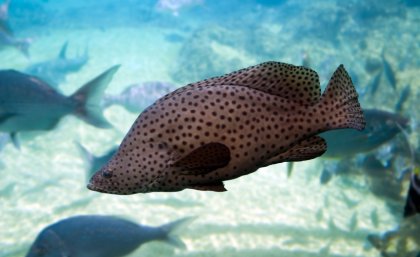
The University of Queensland and industry, business and community partners will collaborate on research projects worth more than $24 million, under the latest round of Australian Research Council Linkage Projects grants.
The ARC has granted $9.35 million to UQ – the second-highest amount in the country in this funding round – and partner organisations will contribute a further $14.89 million in cash and kind to the collaborative research projects they will undertake with UQ.
A total of 24 UQ-led research projects received funding.
Among the organisations that will work with UQ on new Linkage Projects are BHP Billiton Worsley Alumina, Vale, Shanghai Pharmaceuticals, Nihon Superior, PepsiCo, the Australian Sports Commission, South East Queensland Water, Australia Zoo, Lockheed Martin, Mater Misericordiae Health Services Brisbane Ltd, Bayer Bioscience and Vaxine
Vice-Chancellor Professor Peter Høj congratulated the successful researchers and their partners, and said he looked forward to excellent results that would have great relevance to society.
“Working closely and deliberately with partners through the ARC Linkage process sharpens the focus of researchers and the University on premium projects that yield strong beneficial outcomes for society, the environment and economies,” Professor Høj said.
Deputy Vice-Chancellor (Research) Professor Anton Middelberg said: “The wide range of national and international partners that UQ collaborates with, highlights again the ability of UQ researchers to undertake excellent research for impact.”
Two UQ researchers each led two successful proposals as chief investigators – Professor Craig Franklin from the School of Biological Sciences, and Professor Gordon Southam from the School of Earth Sciences.
Professor Franklin, working with UQ’s Professor Hubert Chanson and Dr Matthew Gordos, received $527,824 to work with NSW Fisheries to help conserve native fish.
“Man-made in-stream structures (for example, dams and road crossings) have contributed to major declines in native fish numbers, with more than 6000 barriers to fish migration in NSW alone,” Professor Franklin said.
Fisheries NSW had led the development of national guidelines for the design and construction of fish-friendly road crossings, but “unfortunately these guidelines have little empirical backing”.
“This project will integrate data on the swimming ability of Australian fish species with culvert hydrodynamic modelling to better understand fish requirements in and around road crossings,” Professor Franklin said.
“These data will strengthen national design guidelines and provide the tools engineers and planners need to balance fish migration with effective water management.”
Professor Franklin’s second project, with UQ researcher Dr Hamish Campbell, received $363,000 from the ARC. That project is in partnership with the CSIRO and Australia Zoo, and will monitor the movements, habitat and diet of eight large predatory species in a northern Queensland river over the next three years.
Professor Southam and fellow UQ chief investigators Professor Paulo Vasconcelas and Associate Professor Gene Tyson received $515,000 from the ARC for a project with Brazil-based mining giant Vale SA, in collaboration with Australian National University, to develop a site-scale bioremediation strategy for iron-ore mines by re-establishing canga – “ancient distinct ecosystems” of rare and unique plant species.
“This university-industry collaboration aims to produce economic benefits for the world’s iron mining industry through advanced training in mining-related research, and through the completion of the mining life cycle by site remediation, enhancing Australia’s position as a global leader in providing innovative solutions to today’s mining challenges,” Professor Southam said.
He and Professor Vasconcelos will collaborate with Vale on another project, to recover copper from currently sub-economic low-grade ore. That project was awarded $300,000 in ARC funding.
A submission led by UQ’s Associate Professor Annemaree Carroll was awarded $560,000 to work with the Queensland Department of Education, Training and Employment on embedding social and emotional wellbeing into school-wide policies and classroom practices in order to enhance learning, behavioural and social outcomes. UQ researchers Professor Robyn Gillies and Associate Professor Christina van Kraayenoord also are chief investigators on this project.
“Implementing whole-of-school approaches to enhance social participation and wellbeing will build resilient youth and ultimately the social and academic capacity of Australia’s young people,” Dr Carroll said.
Eureka Prize winner and conservation scientist Dr Kerrie Wilson from the School of Biological Sciences led a collaboration with Griffith University and the Gold Coast City Council that receives $255,000 in ARC funding and aims to address the need for vegetation restoration to avoid further loss of species and ecosystem services such as clean air and water.
“This project aims to develop new theory and methods to help environmental managers allocate restoration funds for vegetation recovery in a way that addresses the tension between risk aversion and aspirations to maximise return on investment,” Dr Wilson said.
The work would “make public expenditure on restoration more effective, efficient and transparent”.
The full list of projects that have been funded in the latest Linkage Projects round can be found here.
Contact: Fiona Cameron, UQ Communications, ph +61 7 3346 7086, communications@uq.edu.au
.jpg)

